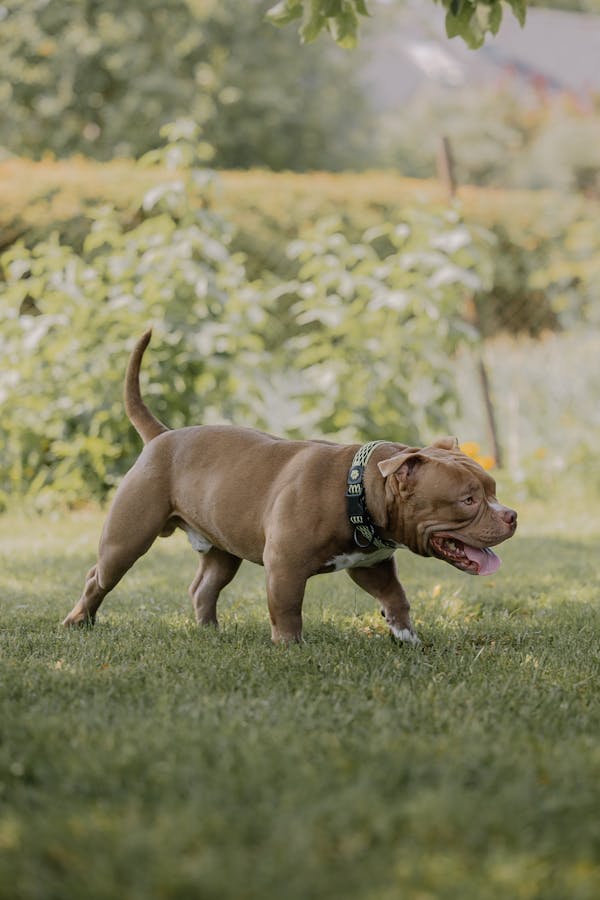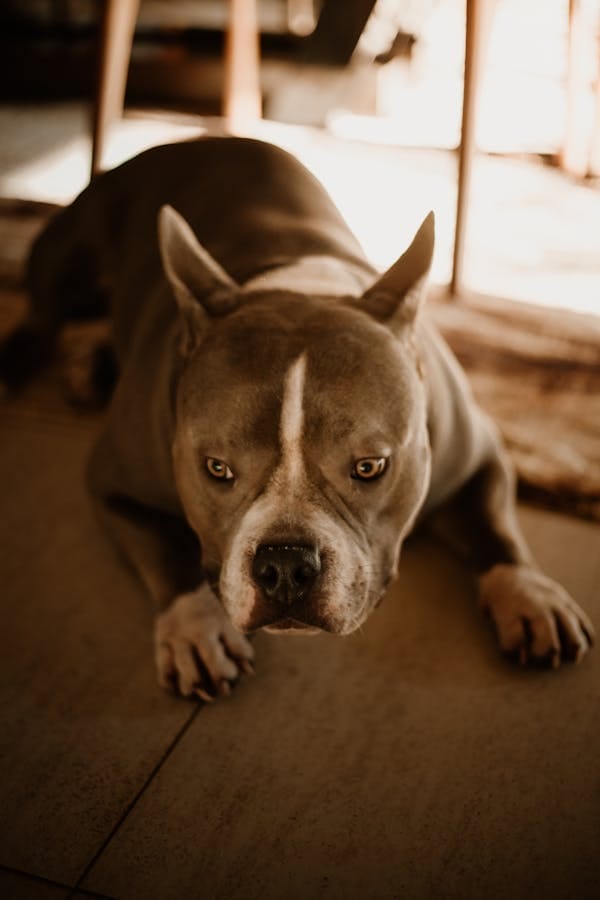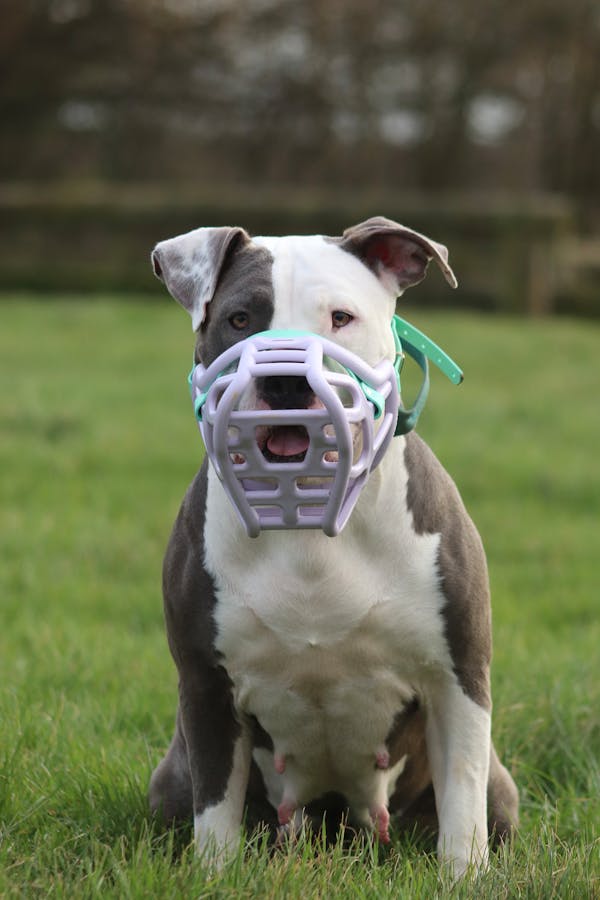
Pit Bulls have long been a topic of controversy and fear.
They are often portrayed as aggressive, dangerous animals, leading many people to fear them.
However, this perception doesn’t tell the whole story.
In this post, we’ll dive deep into the historical context of Pit Bulls, their origins, common misconceptions, and the reality behind their behavior.
We’ll also explore why these dogs are feared and what can be done to change the stigma surrounding them.
Historical Context
To understand why Pit Bulls are often feared, we need to look at their past.
In the 1800s, Pit Bulls were bred in England for bull-baiting and dog fighting.
Their physical strength and determination made them suitable for these brutal activities.
Even after these blood sports were outlawed, some continued to use Pit Bulls for illegal dog fighting, which gave the breed a reputation for being aggressive.
Unfortunately, this past still affects how many people see Pit Bulls today.
Origins of Pit Bulls as Fighting Dogs
The American Pit Bull Terrier, one of the most well-known Pit Bull breeds, came from a cross between Bulldogs and Terriers.
These dogs were bred for their strength and determination, which made them tough competitors in dog fights.
Even though dog fighting has been illegal for many years, the connection between Pit Bulls and fighting still causes many people to view them as naturally aggressive dogs.

Common Misconceptions About Pit Bulls
Many people hold misunderstandings about Pit Bulls, which can contribute to their negative reputation.
Here are some common misconceptions:
Pit Bulls are naturally aggressive
While many believe Pit Bulls are aggressive by nature, research shows that aggression is not specific to any breed.
A study by the American Temperament Test Society (ATTS) found that Pit Bulls have an 86.4% passing rate for temperament tests, which is similar to or even higher than that of many other breeds, including Golden Retrievers.
Pit Bulls have “Locking Jaws”
Some people think that when a Pit Bull bites, its jaw locks and can’t be opened.
However, no dog breed has this feature.
While Pit Bulls do have a powerful bite, their jaw structure is the same as that of other dogs.
Pit Bulls are responsible for most dog bites
Although Pit Bulls appear in dog bite statistics, it’s important to note that “Pit Bull” is a broad term that includes various breeds and mixed-breed dogs.
Many bites labeled as Pit Bull incidents often involve dogs that have been misidentified.
The Truth About Pit Bulls
Research shows that Pit Bulls are not naturally aggressive.
The American Veterinary Medical Association (AVMA) explains that a dog’s behavior is influenced more by individual factors, such as how it’s raised, trained, and treated, rather than its breed.
This means that the way a dog is socialized and cared for has a greater impact on its behavior than simply being a Pit Bull.
One way to measure a dog’s temperament is through the American Temperament Test Society (ATTS), which assesses a dog’s stability, friendliness, and ability to protect its family.
When tested, Pit Bulls scored similarly to other popular family dogs like Beagles and Border Collies.
This shows that, with the right training and care, Pit Bulls can be just as friendly, gentle, and loyal as other breeds.

Comparison to Other Dog Breeds
To better understand Pit Bulls, it’s useful to compare them with other well-known dog breeds:
German shepherds
These dogs are known for their intelligence and loyalty and are often used in police and military roles.
However, without proper training, they can also show aggressive behavior.
Chihuahuas
Despite their small size, Chihuahuas can be aggressive and prone to biting.
However, they don’t instill the same fear because of their size, even though their behavior can be similar to that of larger breeds.
Factors Contributing to Dog Bites
Understanding why dogs bite can help ease fears and prevent these incidents from happening.
Here are some key factors that contribute to dog bites:
Lack of socialization
Dogs that haven’t been exposed to different people, animals, and environments may become fearful or aggressive when faced with new situations.
Proper socialization helps dogs feel comfortable and less likely to react badly to the unfamiliar.
Improper training
If dogs are trained with harsh punishment or are encouraged to act aggressively, they may develop aggressive behaviors.
Positive training methods that reward good behavior are much more effective in raising a well-behaved dog.
Neglect or abuse
Dogs that have been mistreated or neglected are more likely to show aggressive behavior.
This can happen to any dog, regardless of its breed.
A history of abuse can make a dog fearful and defensive, which sometimes leads to biting.
According to a study by the Centers for Disease Control (CDC), most dog bites occur in situations where dogs are unneutered males, children are left unsupervised around dogs, or the dog has a history of abuse.
This shows that a dog’s environment and how it’s treated play a much bigger role in aggressive behavior than its breed does.

Addressing the Fear and Stigma
It’s clear that the fear of Pit Bulls is based largely on misconceptions and media portrayal.
So, how can we change this?
Promoting responsible dog ownership
Owners play a huge role in shaping their dog’s behavior.
Ensuring that dogs are well-socialized, trained with positive reinforcement, and given a loving environment helps reduce aggression.
Educating owners about these responsibilities is key to reducing incidents and changing perceptions.
Education and awareness campaigns
Communities and animal organizations are increasingly focusing on awareness campaigns to educate the public about Pit Bulls.
These initiatives often include:
- Workshops on dog behavior and responsible pet ownership.
- Efforts to dispel myths about Pit Bulls, highlighting their potential as family pets.
- Advocacy for breed-neutral laws that focus on behavior, not breed.
The Role of shelters and rescue organizations
Many shelters are working hard to change public perception by showcasing the loving, adoptable Pit Bulls in their care.
They conduct behavior assessments and training programs to prepare dogs for adoption, ensuring that they go to responsible homes.
Advocating for breed-neutral legislation
Breed-specific legislation (BSL) has proven ineffective in reducing dog bite incidents.
Experts advocate for breed-neutral laws that focus on educating owners, requiring proper containment and control of pets, and penalizing negligent behavior rather than banning specific breeds.
By shifting focus from breed to behavior, communities can work together to reduce dog bite incidents more effectively.

Final Thoughts
Pit Bulls are often misunderstood due to their history and media portrayal.
The truth is, that they are loyal and loving animals capable of being wonderful companions when given proper care and training.
Education, responsible ownership, and advocacy for fair legislation are essential steps in reshaping the public’s perception of Pit Bulls.
FAQs
No, Pit Bulls are not naturally aggressive. Studies show that they have a temperament similar to many other breeds. Behavior is influenced more by training, socialization, and treatment.
No, the “locking jaw” myth is false. Pit Bulls have strong jaws, but their anatomy is no different from other breeds.
Yes, with proper training and socialization, Pit Bulls can be loyal, affectionate, and excellent family pets.
Many incidents are due to misidentification or lack of responsible ownership. Factors such as improper training, neglect, and unsupervised interactions play a larger role than breed alone.
- Does Cat Litter Melt Ice? The Complete Guide to Winter Safety - January 30, 2026
- Happy Tail Dogs: Understanding This Common Canine Condition - January 29, 2026
- How Cold Can Outdoor Cats Handle? Feline Winter Safety - January 27, 2026


GIPHY App Key not set. Please check settings